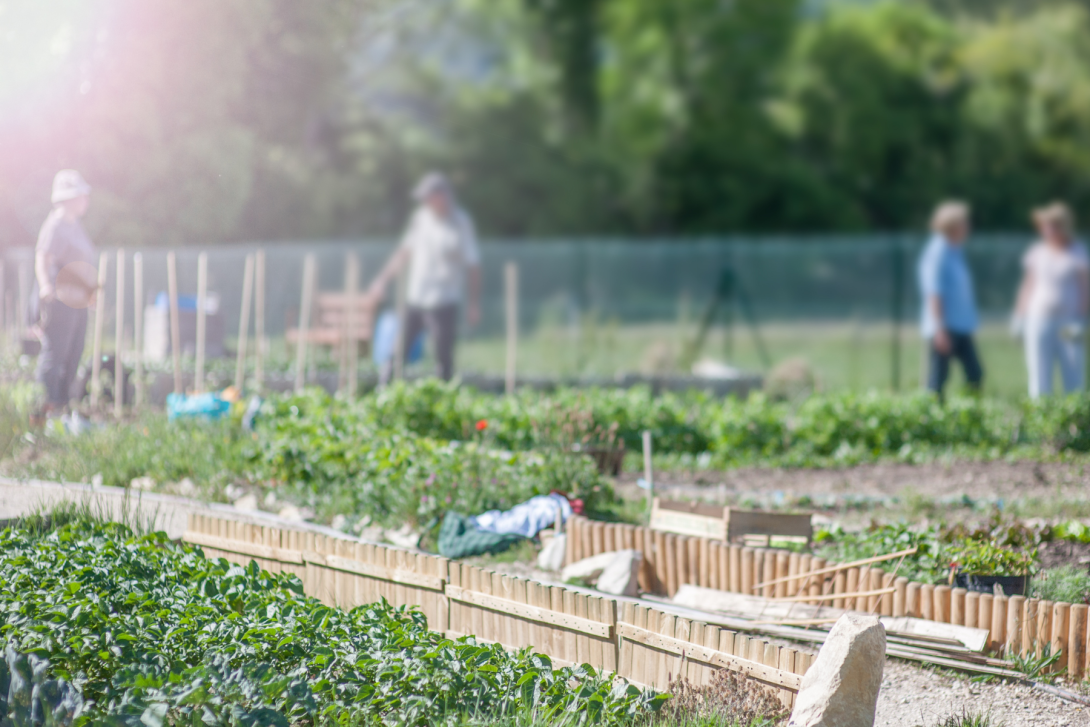
Last week The Wildlife Trusts published a new report A Natural Health Service: Improving Lives and Saving Money which shows that green prescribing can save more in healthcare costs than the price of running a ‘green prescribing’ scheme.
SF&G members, and in particular Green Care Quality Mark holders, will be familiar with the numerous physical and mental health benefits that spending time outdoors and with community can bring. This new study shows that if green social prescribing initiatives were more widely adopted throughout the UK, the cost of the initiative would be more than offset by the significant savings made in reduced reliance on NHS services.
Social Farms & Gardens supports The Wildlife Trust's call for the UK Government to increase access to green social prescribing projects by:
- Integrating green prescribing into community health and social care services everywhere.
- Encouraging shared investment from Government departments working on housing, employment, community cohesion, transport and culture.
- Providing support to help strengthen partnerships between local healthcare services and community-rooted organisations.
If programmes like those described in this research were made available to more people in more places, they could help prevent unnecessary ill-health and reduce the number of people requiring NHS services. This ‘Natural Health Service’ alongside the creation of natural spaces in communities across the country will result in healthy and sustainable places to live and work.
Professor Sir Michael Marmot
The new research looked at five Wildlife Trusts programmes which resulted in estimated annual costs savings using cost : benefit analysis.
- Wild at Heart by Sheffield and Rotherham Wildlife Trust is a social group that runs nature-based activities and helps people learn new skills. Analysis found healthcare cost savings of £38,646 of 82 participants over a year. For every £1 invested, there is£1.19 of additional benefit in terms of reduced costs to the NHS.
- MyPlace by Lancashire Wildlife Trust helps people improve mental and physical health. Analysis found healthcare cost savings of £7,024 and reduced employment-related costs due to mental health of £28,442. For every £1 invested, there is £2.16 of additional benefit in terms of reduced costs to the NHS.
- Feed the Birds by Shropshire Wildlife Trust addresses social isolation and loneliness by linking individuals with volunteers who help them feed birds. Analysis found healthcare cost savings of £15,460 per year of 57 people. For every £1 invested, there is £0.40 of additional benefit in terms of reduced costs to the NHS. Assuming all participants were fully engaged over the full 31-month duration, the accumulated benefits over this period are much higher, at around £102,440.
- Nature for Health in Greater Manchester is part-run by Lancashire Wildlife Trust and harnesses the power of nature to improve mental health. Analysis found healthcare cost savings of £44,745. For every £1 invested, there is £0.18 – £0.93 of additional benefit in terms of reduced costs to the NHS.
- Wild Health by Gwent Wildlife Trust provides opportunities for recreational, social, and work-based outdoor activities that benefit physical and emotional well-being. Analysis found healthcare cost savings of £66,882, equating to £471 saving per participant. For every £1 invested, there is £0.58 – £1.10 of additional benefit in terms of reduced costs to the NHS.
This new research proves the immense value of nature-based projects for improving individual health and helping to ease the burden on the NHS. Nature is an essential part of health and social care, but we are not maximising that potential. Green prescribing works and the more we can develop these kinds of programmes, the greater the benefit to society.
Dom Higgins, Head of Health and Education. The Wildlife Trusts
